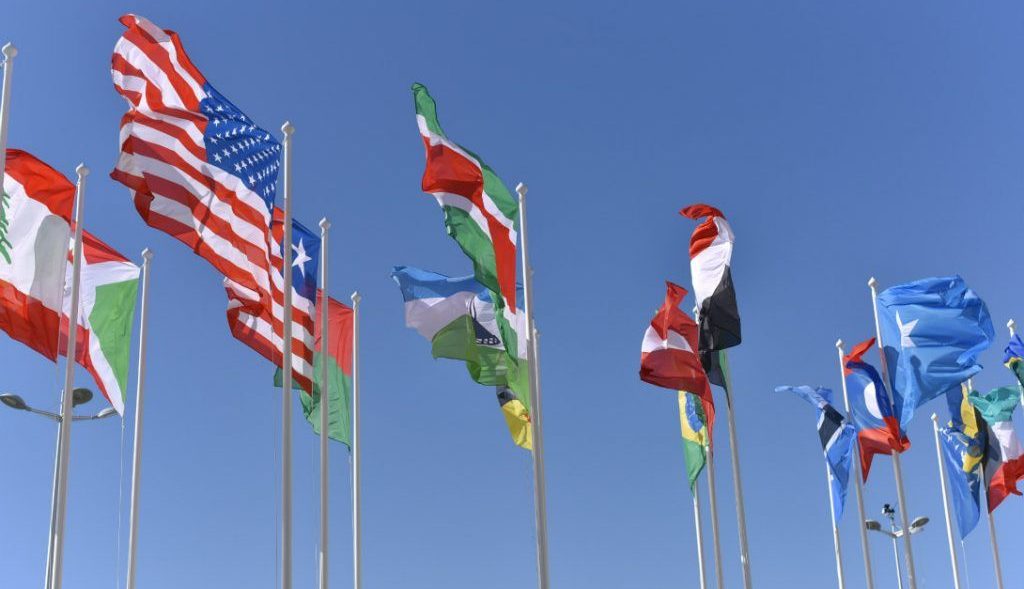Event Info

Location
The sixth G20 Interfaith Forum will take place in Tokyo, Japan from June 7-9, 2019, at the Hotel New Otani Makuhari. This year’s theme is “Confronting 21st Century Challenges: Answering Urgent Calls of People and Planet.”
Forum Title and Theme
The overarching theme for the 2018 G20 Interfaith Forum was “Building Consensus for Fair and Sustainable Development: Religious Contributions for a Dignified Future.” Over three days, presentations, panel discussions, and working group sessions aimed to build networks and develop concrete policy recommendations on the following sub-themes:
- Inequality, Religion, and the Future of Work
- Accommodating Religion in the Workplace and Schools of the Future
- Changing Women’s Roles to Reflect Equal Rights and Opportunities: Religious Debates and Action
- Religious Perspectives on Innovation, Labor, and Education
- Religion, Environmental Change, and a Sustainable Food Future
- Religious Contributions in Movements to Protect the Environment
- Religion and the Fight against Hunger
- Religious Action Regarding Extractive Industries
- Urgent Priorities for Social Cohesion
- Refugees, and Migration: Religious Insights and Action
- Religious Perspectives and Action Regarding Violent Extremism, Conflict Resolution, and Peacebuilding
- The Role of Freedom of Religion or Belief: Practical Dimension
- Religion, Good Governance and Sustainable Development
- Sustainable Finance and Financial Inclusion
- Debates and Action on Economic Policies including Financial Inclusion (Infrastructure)
- Priorities for Equal Opportunities and Respect for Human Rights
- Structural Inequalities and Development
Schedule of Events
Day One (September 26):- Inaugural Session with Keynote, Political, and Religious Leaders, to be held in the Auditorio Manuel Belgrano, Cancillería Argentina, Esmeralda 1212-CABA
- Forum reception
- Plenary session on “Inequality, Religion, and the Future of Work”
- Parallel sessions on labor-related issues, refugees, and other religion and human rights issues
- Plenary session on “Religion, Environmental Change, and a Sustainable Food Future”
- Parallel sessions on religion and the environment, food security, and anti-corruption efforts
- Plenary session on “Religion, Urgent Global Priorities, and the G20 Agenda”
- Parallel sessions on the future of education, addressing religious violence, religious freedom and anti-discrimination norms, global health challenges, and conflict resolution
Day Three (September 28):
- Plenary session on “Advancing the Work of Religiously Affiliated Humanitarian Organizations”
- Plenary session on “Religion, Good Governance, and Sustainable Development”
- Concluding Plenary
Perspectives of indigenous peoples were reflected. Argentina is not currently facing a major refugee issue; however migration challenges are pertinent and religious voices are an important contributor. Similarly, issues regarding sustainable food supplies are tightly linked to broader environmental issues and creating opportunities for dignified labor holds the key to solving many of the problems of youth unemployment and radicalization. The Forum explored perspectives on human development deriving from religious sources: how can these dimensions be integrated synergistically with broader strategies for facilitating achievement of the UN Sustainable Development Goals.
Participants
Participants from a wide range of religious, national, academic, and policy backgrounds came together to raise the level of discourse on the relevant issues and to develop practical recommendations. Working groups were commissioned to cultivate continuing reflection on specific topics where religious voices are particularly well-positioned to make recommendations and to encourage implementation. The aim was to explore ways that religious communities can assume responsibility and contribute distinctive ideas and solutions that can interact with and reinforce the efforts of public and civil society institutions.